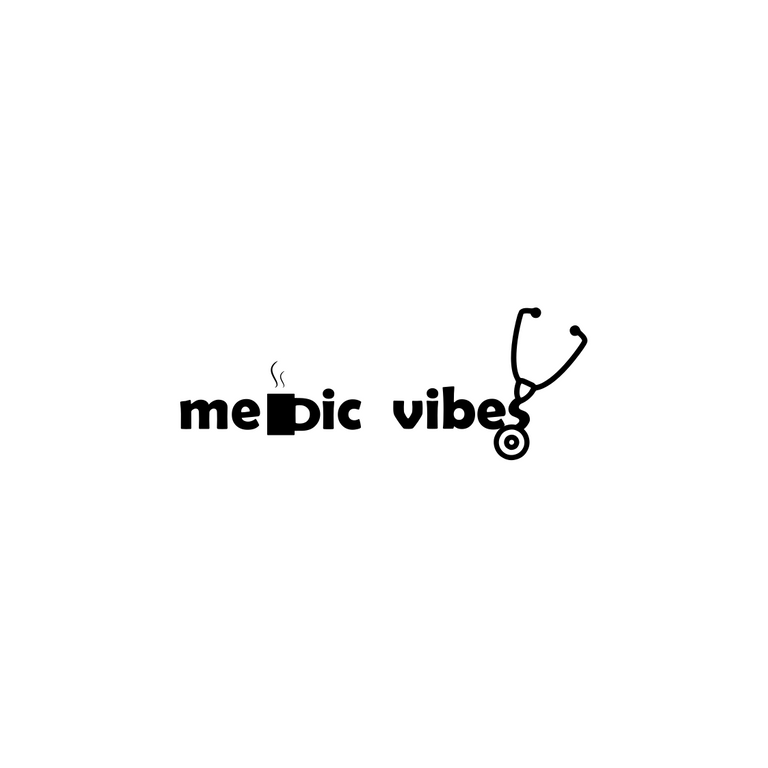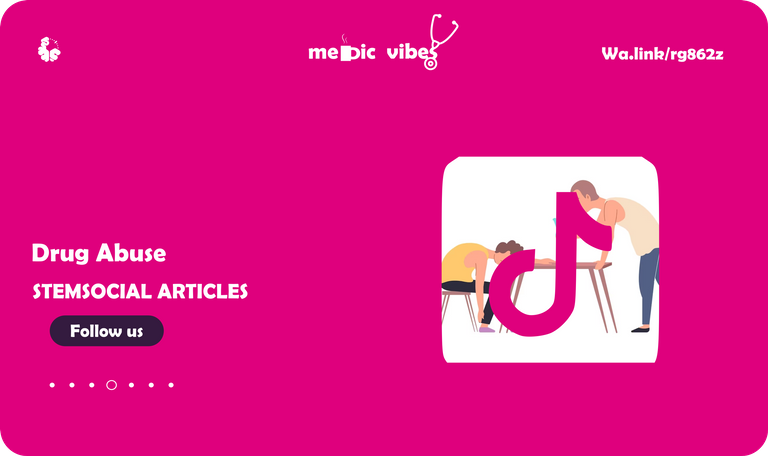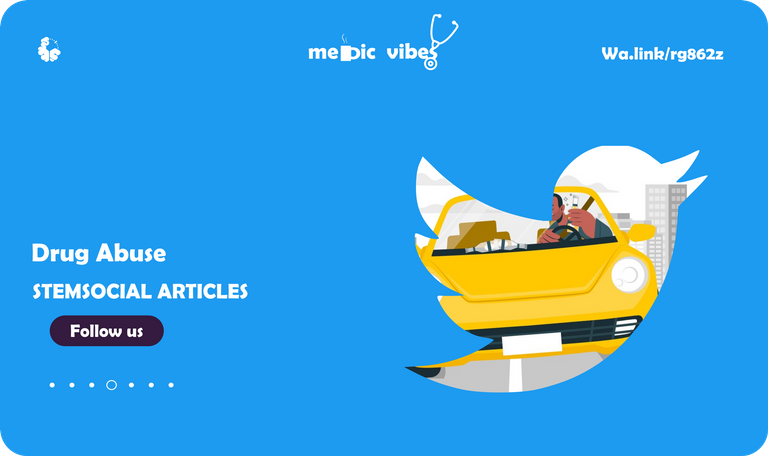Substance abuse and ADHD medication(Reaction)
In the last post, we saw how:
- Alcoholism commonly co-occurs with mood, anxiety and antisocial personality disorders, leading to increased risk of suicide.
- Education is important to handle substance abuse; know risks and treatment options, seek help from government agencies and healthcare practitioners.
- Family plays important role in intervention therapy for alcohol addiction
Welcome to Medic Vibes, where we discuss mental health disorders and make sense of them. Dr Ebingo Kigigha is a medical doctor (aspiring psychiatrist) and creative person (illustration and music). This has been our routine for four consecutive months. This month will be dedicated to substance abuse. In the first month, we discussed Depression, and in the subsequent month, anxiety. We just finished with Conduct disorders.
In this post, we are looking at A Nigerian Study on Substance Abuse. To learn more just keep scrolling down. You can also skip to the key point of the post if you which or go to the conclusion to get the summary.

There are many factors that contribute to a person's decision to drink, including past alcohol-related problems in adolescence and early adulthood that can lead to alcoholism. There are biological, psychological, and social factors at play, such as genetics, religious background, and state of mind.
In psychiatry, there are disorders with a similar interplay, mostly caused by genetic factors, and there are many indications of genetic involvement in alcoholism. Although dominant and recessive traits can be seen in this condition, they only account for a small number of cases.
In many disorders, multiple genetic factors interplay, which can contribute to or deter the development of alcohol-related disorders. Some literature suggests that the contribution is 60% genetic and 40% environmental.
Most of what is known about alcoholism and its causes is theoretical, and the general understanding points to a combination of biological, psychological, and social factors, especially in severe repetitive cases.
There are psychological reasons for alcohol use, such as reducing tension, feeling indestructible, and reducing feelings of pain. Psychologists have mainly focused on the fact that alcohol is perceived as anxiolytic by its users and helps them cope with daily stress.
Psychologists explain that non-alcoholics who use small amounts of alcohol in tense social situations or on particularly stressful days report improved well-being and better sociability.
However, the opposite appears to be true when alcohol is consumed in larger amounts. In addition to increased feelings of nervousness and social tension, there are also increased muscle tensions.
It's possible that the reduced anxiety and tension seen when alcohol is consumed in small amounts may only be a temporary effect and may even relieve the symptoms of withdrawal, but it is unlikely to be the cause of alcoholism.
These studies highlighting the positive effects of alcohol, such as increased power, confidence, and reduced pain, are difficult to fully appreciate.

Substance abuse and ADHD medication(Reaction)

Image by macrovector on Freepik
Attention Deficit Hyperactivity Disorder (ADHD) is a disorder that affects the developing brain and manifests in children and adults. Patients with this disorder are often very active and impulsive. Medications such as Ritalin, Adderall, and Concerta are typically used to manage ADHD.
However, there are many research claims that the medication for this condition puts those taking it at risk of substance abuse. The Substance Abuse and Mental Health Services Administration (SAMHSA) found that those with ADHD were 2 to 5 times more likely to abuse their prescription.
Studies conducted by the National Institute on Drug Abuse also found that those prescribed Ritalin were significantly more at risk of abusing alcohol and cocaine compared to the general population.
Despite these research papers, the results are not conclusive. Some studies show results contrary to those published above. For example, the American Academy of Child and Adolescent Psychiatry found that stimulant medication reduced the risk of substance abuse in the study sample compared to those not receiving treatment.
Most studies express the complexity of the matter and point to other factors that may play a role such as a family history of substance abuse, the patient's susceptibility to substance abuse, and if the patient has other mental health conditions.
Some studies suggest that individuals with ADHD may be more likely to engage in substance abuse due to difficulties with impulse control and decision making, while others suggest that the use of ADHD medication, such as stimulants, may increase the risk of substance abuse.
Factors such as genetics, social factors, and co-occurring mental health problems may all play a role in substance abuse for those with ADHD. The full understanding of the relationship between this disorder and substance abuse is still worth researching.

Treatment
If a patient has completed detoxification and is not part of the 10% to 15% of patients with a mood disorder, schizophrenia, or anxiety, medication may not be appropriate. If the patient still experiences anxiety or insomnia due to stress and abstinence, therapy and reassurance should be used to address these symptoms. Drugs like benzodiazepines can become less effective over time, and patients may need to increase their doses, leading to a vicious cycle.
The same can be said for patients with mood disorders who are prescribed antidepressants or mood stabilizers. It is crucial to treat mood disorders first in patients with alcohol-related disorders, as the use of these medications alongside alcohol can pose significant danger. Despite limited evidence of their effectiveness, it is best to avoid these medications to prevent associated dangers.
Medications for alcohol-related disorders are prescribed to alleviate symptoms such as nausea, vomiting, and abdominal discomfort caused by alcohol. However, there is limited evidence of their effectiveness, likely because many patients stop taking the drugs when they return to drinking.
An exception can be made for the alcohol sensitizing agent disulfiram, which is prescribed in 250 mg doses until the patient is discharged from the intensive first phase of outpatient rehabilitation. However, many clinicians no longer prescribe this drug due to its side effects, including mood swings, psychosis (rarely), peripheral neuropathy exacerbations, and other neuropathies, as well as the risk of fatal hepatitis.
Disulfiram should not be used in patients with heart disease, cerebral thrombosis, diabetes, and other medical conditions, as it can be life-threatening when combined with alcohol.
Several drugs are being studied for their effectiveness in treating alcohol-related dependence disorders. The most popular of these is the opioid antagonist naltrexone, which is believed to reduce cravings for alcohol or make the reward conditioning less effective.
Questions
- What did you learn about Substance abuse?
Conclusion
- Alcoholism is a complex disorder caused by a combination of biological, psychological, and social factors.
- ADHD medication may increase risk of substance abuse, but research is inconclusive and considers other factors such as family history and co-occurring mental health conditions.
- Medications may not be suitable for alcohol-related disorders, therapy and reassurance are recommended.

References
- Kaplan-Sadocks-Comprehensive-Textbook-Psychiatry
- Page demarcations made with Inkscape.org
- Healthline
- NIMH
- WHO


Thanks for your contribution to the STEMsocial community. Feel free to join us on discord to get to know the rest of us!
Please consider delegating to the @stemsocial account (85% of the curation rewards are returned).
You may also include @stemsocial as a beneficiary of the rewards of this post to get a stronger support.
Congratulations @medicvibes! You have completed the following achievement on the Hive blockchain And have been rewarded with New badge(s)
Your next target is to reach 35000 upvotes.
You can view your badges on your board and compare yourself to others in the Ranking
If you no longer want to receive notifications, reply to this comment with the word
STOPCheck out our last posts:
Support the HiveBuzz project. Vote for our proposal!
Congratulations your publication has been chosen among the best of the day.
KEEP CREATING GOOD CONTENT.